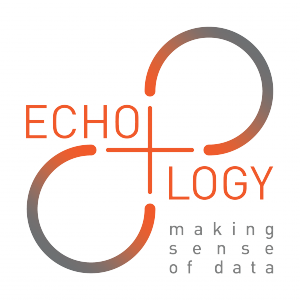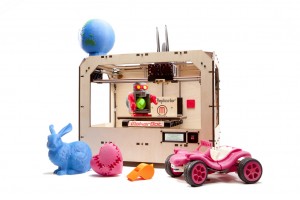 Imagine living alongside artworks that reflect the choices that you and your local communities are making towards achieving a sustainable future (more…)
Imagine living alongside artworks that reflect the choices that you and your local communities are making towards achieving a sustainable future (more…)
Archive for February, 2012
Echology: Making Sense of Data :: Seminar Registrations now open
Friday, February 24th, 20123D Printing Forum: RiAus, Monday 20th February
Thursday, February 16th, 2012DFEEST, Intel US, RiAus and Australian Network for Art and Technology (ANAT) are proud to present a forum and technical workshop about 3D printing. Speakers will examine the impact these rapidly developing and increasingly affordable technologies will have on many areas, including creativity, education, industry and manufacturing.
Both sessions sold out, register here to be added to the waitlist.
Twitter hashtag: #3DprintADL
Program
Morning Session (9am to 1pm)
9.30 – 11 am: Presentations
9.30 – 9.45am: RiAus, Dr Paul Willis, Director RiAus, and James Byrne, Programs Co-ordinator will introduce the day
9.45 – 10am: ANAT (Australian Network for Art and Technology), Gavin Artz, ANAT CEO presents “Manufacturing and Creativity”: a strategic overview of 3D printing.
10 – 10.15am: Intel Labs, Genevieve Bell, PhD, Intel Fellow and Director, Interactions and Experience Research, Jay Melican, PhD, Design Team Captain, and Lucas Ainsworth, Experience Designer, present “America’s Maker Movement and why Intel Cares”
10.15 – 10.45am: Ponoko, David ten Have CEO presents “The Future of Products”: how the design, manufacture and distribution of products are changing in a networked world.
10.45 – 11am: Institute of Backyard Studies, Mark Thomson, Research Director presents “Lighting up the Locals: possible networks of makers”.
11 – 11.30am: Morning Tea and 3D printer demonstrations
11.30 – 11.45am: UniSA: School of Art, Architecture and Design, Peter Schumacher, Lecturer – Industrial Design presents “Design & Digital Manufacturing”: examples of digital manufacturing and how they change the interaction of consumers with producers.
11.45 – 11.55am: Dr Sivam Krish, Digital Design Expert presents “Consumer Creation”: how the phenomenon of DIY design is enabling consumers to become creators.
11.55 – 12.05pm: NAMIG (Northern Advanced Manufacturing Industries Group) and UniSA, Bernie Fitzsimons, General Manager of NAMIG and David Chan, Engineering Faculty UniSA present “Use of 3D Printers in schools”
12.05 – 12.15pm: Bridge8, Kristin Alford, Founding Director presents “How industry is using advanced manufacturing, with a focus on the medical devices industry”
12.15 – 12.55pm: Panel Discussion
Chaired by Dr Genevieve Bell (Intel Labs).Panel members: David ten Have (Ponoko), Gavin Artz (ANAT), Jay Melican (Intel US), Peter Schumacher (UniSA)
Questions can be sent via Twitter using #3DprintADL
12.55 – 1pm: Carolyn Anderson, Director, Digital Economy and Technology, Department of Further Education, Employment, Science and Technology, will close the morning session.
Afternoon Technical Workshop and Demonstrations (2 to 5.30pm)
2pm – 3.30pm: Presentations
2.00 – 2.05pm: ANAT, Gavin Artz, CEO, introduces the afternoon session
2.05 – 2.30pm: Monkeystack, Shane Bevin, Company Director, and Ben Dansie, 3D Artist, present “Overview of 3D design programs suitable for the creation of files to be printed”
2.30 – 2.45pm: Ponoko, David ten Have, Ponoko CEO, presents “The top mistakes to watch out for when designing for 3D printing”
2.45 – 3.00pm: Fingo, Andrew Whittaker, Partner, presents “Overview of various prototyping methods for product commercialisation”
3.00 – 3.10pm UniSA School of Computer and Information Science, Ross Smith, Deputy Director, Wearable Computer Laboratory presents “Digital Foam: research into deformable input devices to support new human-computer interactions technologies”
3.10 – 3.30pm: Dr Sivam Krish presents “Design Technologies and web platforms for consumer 3D printing / bottle necks to be aware of”
3.30 – 3.35pm: ANAT, Gavin Artz, CEO, will close the presentations session and open the informal networking and demonstrations session.
3.35pm to 5.30pm: Demonstrations and Networking
Demonstrations:
- Generative design (Dr Sivam Krish)
- 3D design software (Monkeystack)
- 3D Printers (UniSA, Hackerspace, ANAT)
- Digital foam (UniSA)
- Rapid prototyping samples (Fingo)





